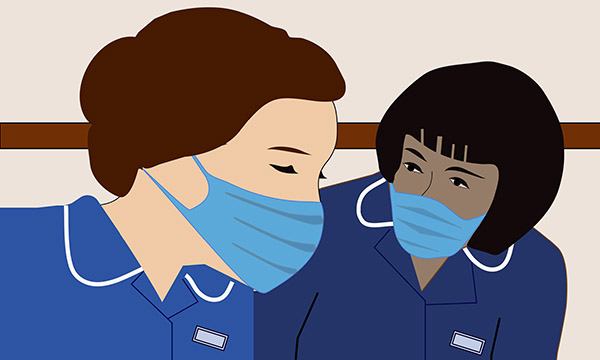Compassionate leadership: how to support your team when fixing the problem seems impossible

Resource
Exclusive quality-assured learning resource
Online

Available to RCNi Plus subscribers
Applicable for any nurse with an RCNi subscription
Stress, suboptimal mental health and an inadequate work-life balance are underlying and serious issues in the nursing profession, affecting staff recruitment and retention and potentially having a detrimental effect on patient care.
While compassion towards patients is central to the nursing role, often ‘compassion towards the compassionate’ is lacking. The need for compassion is even more important now, and in the months ahead, due to the additional stressors experienced by nurses during the COVID-19 pandemic, whether they are on the front line, furloughed or shielding.
This article includes reflections from nursing staff and uses their stories to encourage reflection on ethical and moral dilemmas experienced during the pandemic. The Compassion in the Workplace model is suggested as a tool that can be used by nurse managers to examine their compassion levels and to support the development of a compassionate workplace. In addition, this article offers some practical ideas on what compassionate leadership might look like in day-to-day practice.
Who is this resource for?
This resource is aimed at nurses and nursing support workers across all settings and levels of practice, including students of health, social work and care professions.

 ;
; ;
; ;
; ;
;